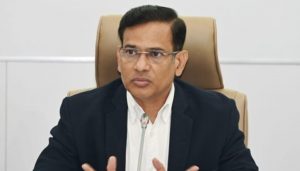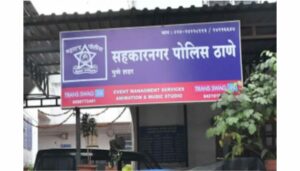Kejriwal wants full statehood for Delhi, but supports J&K becoming Union Territory
New Delhi, August 5, 2019 : Delhi Chief Minister Arvind Kejriwal has made a big statement about the removal of Article 370 from Jammu and Kashmir by the Central Government. He said, “I support this decision of the government. Now we hope that after this decision of the government, along with restoring peace in Jammu and Kashmir, emphasis will be laid on development works.”
Union Minister for Home Affairs, Shri Amit Shah, introduced two bills and two resolutions regarding Jammu & Kashmir (J&K) today. These are as follows:
- Constitution (Application to Jammu & Kashmir) Order, 2019 {Ref. Article 370(1) of Constitution of India} – issued by President of India to supersede the 1954 order related to Article 370.
- Resolution for Repeal of Article 370 of the Constitution of India {Ref. Article 370 (3)}
- Jammu & Kashmir (Reorganisation) Bill, 2019 {Ref. Article 3 of Constitution of India}
- Jammu & Kashmir Reservation (2nd Amendment) Bill, 2019
Announcing a path breaking decision by the Government, Shri Shah said that the Government is moving a resolution which would repeal the provisions under Article 370 of the Constitution of India,which granted a special status to the state of J&K. The provisions of Article 370 would cease to exist from the date President of India issues a notification in this regard, after the recommendation of the Parliament. Consequently, the Constitution of India would get applicable to J&K, on par with other states/UTs of the country, the Minister added.
After this Kejriwal tweeted his message in support of the central government. Many people are surprised by Kejriwal’s move as he has been demanding full statehood for Delhi, and has been critical of Prime Minister Narendra Modi government. Kejriwal has often demanded full statehood for Delhi.
Know all about Delhi Government
As a first-level administrative division, the National Capital Territory of Delhi has its own Legislative Assembly, Lieutenant Governor, council of ministers and Chief Minister. Members of the legislative assembly are directly elected from territorial constituencies in the NCT. The legislative assembly was abolished in 1956, after which direct federal control was implemented until it was re-established in 1993.
The Municipal corporation handles civic administration for the city as part of the Panchayati Raj Act. The Government of India and the Government of National Capital Territory of Delhi jointly administer New Delhi, where both bodies are located. The Parliament of India, the Rashtrapati Bhavan (Presidential Palace), Cabinet Secretariat and the Supreme Court of India are located in the municipal district of New Delhi. There are 70 assembly constituencies and seven Lok Sabha (Indian parliament’s lower house) constituencies in Delhi.
The Indian National Congress (Congress) formed all the governments in Delhi until the 1990s, when the Bharatiya Janata Party (BJP), led by Madan Lal Khurana, came to power. In 1998, the Congress returned to power under the leadership of Sheila Dikshit, who was subsequently re-elected for 3 consecutive terms. But in 2013, the Congress was ousted from power by the newly formed Aam Aadmi Party (AAP) led by Arvind Kejriwal forming the government with outside support from the Congress. However, that government was short-lived, collapsing only after 49 days. Delhi was then under President’s rule until February 2015. On 10 February 2015, the Aam Aadmi Party returned to power after a landslide victory, winning 67 out of the 70 seats in the Delhi Legislative Assembly.
Since 2011 Delhi has had three municipal corporations:
SDMC having jurisdiction over South and West Delhi areas including Mahipalpur, Rajouri Garden, Janakpuri, Hari Nagar, Tilak Nagar, Dwarka, Jungpura, Greater Kailash, R K Puram, Malvya Nagar, Kalkaji, Ambedkar Nagar and Badarpur.
NDMC has jurisdiction over areas such as Badli, Rithala, Bawana, Kirari, Mangolpuri, Tri Nagar, Model Town, Sadar Bazar, Chandni Chowk, Matia Mahal, Karol Bagh, Moti Nagar
EDMC has jurisdiction over areas such as Patparganj, Kondli, Laxmi Nagar, Seemapuri, Gonda, Karawal Nagar, Babarpur and Shahadra
In 2017 the BJP emerged the victors in elections to all three corporations.








